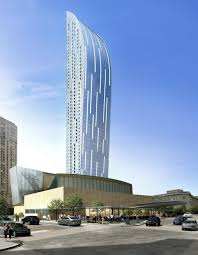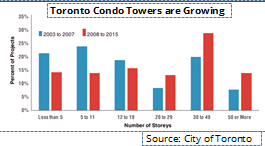 June 2018
June 2018
Condominiums have evolved from a strictly residential form of housing.
Today they include not only residential living but retail plazas, hotels and office buildings. As with residential housing, all are individually owned. Common elements such as roof, hallways, parking and landscaped areas are maintained through common fees. Regardless of form, all condos are governed by the Condo Act.
 An innovation encouraged by city planners is the creation of mixed-use developments. In addition to residential housing, a mixed-use development may include any number of private businesses or services such as restaurants, supermarket, day-care, school or exercise club.
An innovation encouraged by city planners is the creation of mixed-use developments. In addition to residential housing, a mixed-use development may include any number of private businesses or services such as restaurants, supermarket, day-care, school or exercise club.
Rather than isolating residential housing from services or businesses, communities have developed where residential housing within easy access to the services people require has become desirable. This facilitates community and places less strain on community resources such as transit. It promotes livability by making an area more enjoyable to live in.

People are happier when they have access to services and entertainment without having to travel a distance.
Business use may entail added complications such as exclusive protections preventing identical or similar businesses from opening within the condo corporation.
 All parties benefit from a successful mixed-use development. Businesses benefit from customers who reside within walking distance. Residents improve their lifestyle when they benefit from access to what they require or desire without travel or unnecessary cost.
All parties benefit from a successful mixed-use development. Businesses benefit from customers who reside within walking distance. Residents improve their lifestyle when they benefit from access to what they require or desire without travel or unnecessary cost.
Mixed-use developments are here to stay. They combine residential housing with a range of services desired by the local community. This is a win-win scenario that will continue to evolve.



